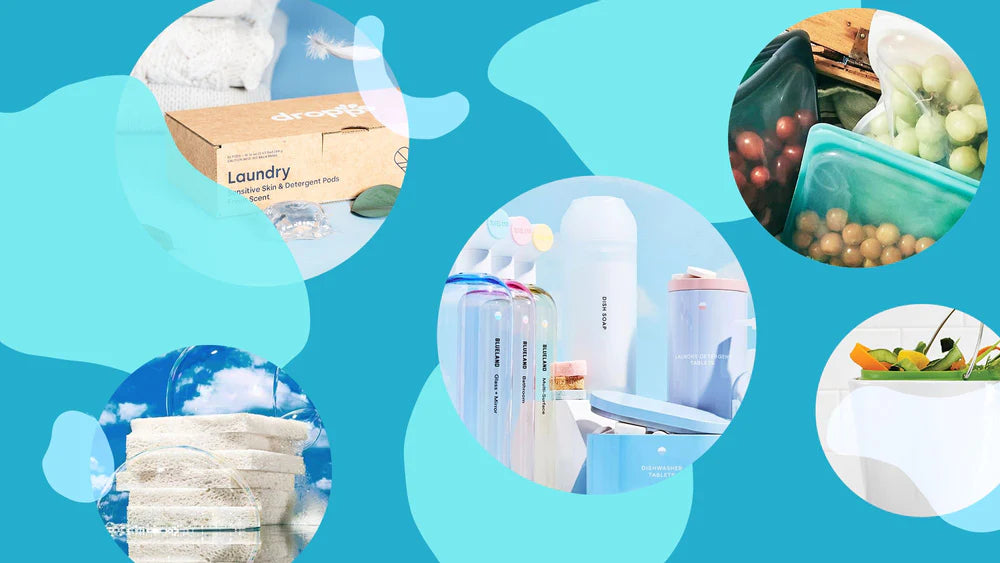In an era where environmental consciousness is becoming increasingly embedded in consumer choices, plant-based laundry detergents have emerged as a sustainable alternative to traditional counterparts. This article takes a deep dive into the world of plant-based laundry detergents, exploring their benefits, the environmental impact of conventional options, and the growing momentum behind choosing eco-friendly solutions for laundry care.
The Environmental Quandary of Conventional Laundry Detergents:
Traditional laundry detergents, widely used for decades, often contain a cocktail of chemicals that can have adverse effects on both the environment and human health. The key environmental concerns associated with conventional detergents include water pollution, contribution to plastic waste, and the extensive use of synthetic chemicals in their formulations.
- Water Pollution:
- Chemical Runoff: Conventional detergents release chemicals like phosphates and surfactants into water systems, contributing to water pollution and disrupting aquatic ecosystems.
- Plastic Waste:
- Packaging Impact: The packaging of many traditional detergents involves single-use plastic containers, exacerbating the global plastic pollution crisis.
- Synthetic Chemicals:
- Impact on Human Health: Harsh chemicals present in conventional detergents can cause skin irritation, and respiratory issues, and are potential contributors to indoor air pollution.
Plant-Based Laundry Detergents: An Eco-Friendly Alternative:
Plant-based laundry detergents, as the name suggests, derive their cleaning power from natural ingredients, primarily sourced from plants. These alternatives aim to mitigate the environmental impact associated with traditional detergents while providing an effective solution for keeping clothes clean and fresh.
Key Benefits of Plant-Based Laundry Detergents:
- Environmentally Friendly Ingredients:
- Botanical Components: Plant-based detergents utilize ingredients such as coconut oil, citrus extracts, and enzymes to achieve effective cleaning without the need for harsh chemicals.
- Biodegradability:
- Reduced Ecological Impact: Plant-based detergents break down more easily than their synthetic counterparts, minimizing their impact on ecosystems and waterways.
- Sustainable Packaging:
- Reducing Plastic Use: Many plant-based detergents come in eco-friendly packaging, such as recycled or biodegradable materials, to address concerns about plastic waste.
- Reduced Carbon Footprint:
- Sustainable Sourcing: Some plant-based detergents prioritize sustainably sourced ingredients, contributing to a lower overall carbon footprint.
- Hypoallergenic Formulations:
- Gentle on Skin: Plant-based detergents are often hypoallergenic, making them a suitable choice for individuals with sensitivities to synthetic fragrances and harsh chemicals.
Navigating the Eco-Friendly Laundry Landscape:
- Ingredient Transparency:
- Reading Labels: Look for plant-based detergents with transparent ingredient lists, avoiding those with undisclosed synthetic additives.
- Performance Considerations:
- Evaluating Effectiveness: Test different plant-based detergents to ensure they meet performance expectations, effectively removing stains and odors.
- Packaging Choices:
- Eco-Friendly Packaging: Opt for detergents that use minimal or eco-friendly packaging to align with sustainability goals.
- Certifications and Standards:
- Third-Party Verification: Choose products with recognized certifications like USDA Organic or EcoLogo, indicating adherence to specific environmental standards.
- Personal Sensitivities:
- Allergies and Sensitivities: Consider individual sensitivities and allergies when selecting plant-based detergents, as these options may still contain certain plant-derived compounds that can cause reactions.
The Shift Towards Sustainable Laundry Practices:
The growing popularity of plant-based laundry detergents reflects a broader shift in consumer awareness towards sustainable living. As individuals seek to align their daily choices with environmentally friendly options, the laundry room becomes a pivotal space for positive change. The adoption of plant-based alternatives contributes to the reduction of chemical pollution, plastic waste, and overall environmental impact.
The Road Ahead: Redefining Laundry Care for a Greener Future:
- Consumer Education:
- Promoting Awareness: Continued education on the environmental impact of traditional detergents and the benefits of plant-based alternatives can drive widespread adoption.
- Industry Innovation:
- Research and Development: Encouraging innovation within the industry to develop more effective and affordable plant-based formulations will contribute to mainstream adoption.
- Regulatory Support:
- Environmental Standards: Governments and regulatory bodies can play a role in setting and enforcing standards that encourage the development and use of eco-friendly laundry solutions.
In Conclusion:
Plant-based laundry detergents embody a conscious choice toward nurturing both our wardrobes and the planet. As consumers increasingly recognize the impact of daily habits on the environment, the laundry room becomes an accessible space for positive change. By embracing plant-based alternatives, individuals contribute to a collective effort to reduce ecological harm, fostering a greener and more sustainable future, one load of laundry at a time.



